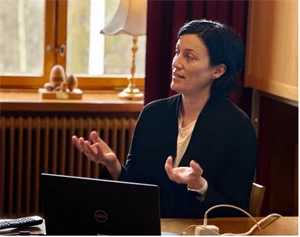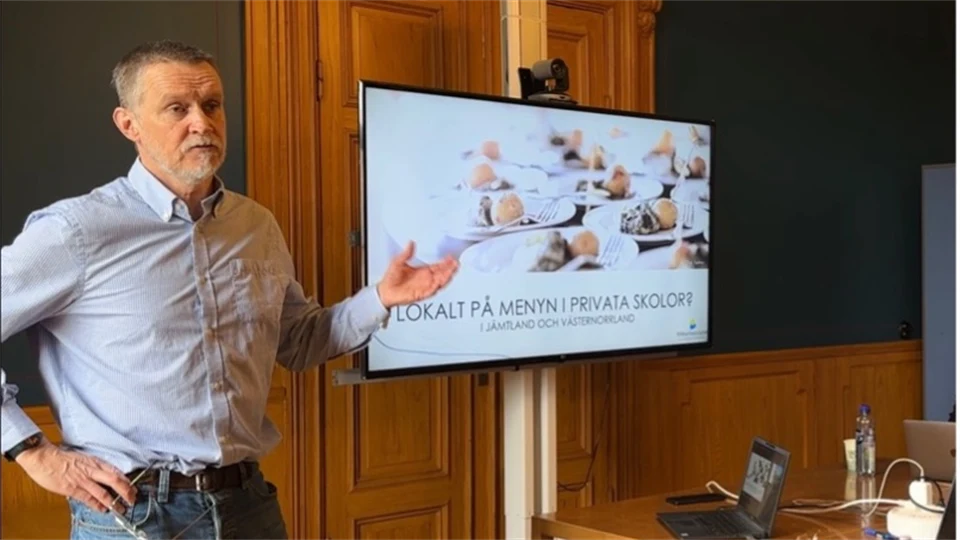Workshop on local food, school meals and digital visibility
On May 8, 2025, about 20 participants from companies, authorities and academia gathered at Mid Sweden University in Östersund for a workshop within the research project Enhancing Entrepreneurship in Rural Areas through Local Food Systems.
At the workshop, a survey was presented on entrepreneurship in the food sector in Jämtland, a study of meals in private schools in Jämtland and Västernorrland, and an analysis of Jämtland's food companies' online presence and digital platforms.
The participants contributed valuable perspectives to discussions on how local food systems can be strengthened – both analogue and digital. Among other things, the need for better collaboration, clearer procurement channels and support for schools that want to work more with local food was highlighted.
Survey on entrepreneurship in the food sector in Jämtland

Beate Stålsett
Beate Stålsett presented a recent survey that aims to map strengths, weaknesses, opportunities and threats (SWOT) for small-scale food companies in Jämtland. Of the 234 companies surveyed, 64 (27%) responded.
Some key findings:
- Business structure: The majority are sole proprietorships, often registered as sole proprietorships or limited liability companies.
- Driving forces: The strongest driving forces are passion, quality, sustainability and local roots.
- Challenges: Lack of capital, vulnerability in the event of illness, difficulties in hiring and competition from larger players.
- Opportunities: Increased demand for local and sustainable food, as well as new policy frameworks.
- Threats: Economic uncertainty, climate change and political decisions.
- Digitalization: Many people use social media and REKO rings for marketing and sales, but few use Dynamic Purchasing System (DIS).
- Local roots: Many companies are dependent on local actors, but also see potential to replace imported raw materials with local alternatives.
Meals in private schools in Jämtland and Västernorrland

Towe Johnson
Towe Johnson and Wilhelm Skoglund presented a study based on interviews with independent schools in which they investigated the possibilities of increasing the proportion of locally produced food in school meals.
Main findings:
- Low transparency: Many schools have outsourced meals and little visibility into what is served.
- Lack of policy: Few schools have guidelines or requirements for local or sustainable food in their agreements.
- Challenges: Perceived high costs, lack of time and knowledge, and difficulties in influencing suppliers.
- Opportunities: Interest exists, especially if it can be used as a branding or sales pitch. There is also room for increased dialogue with suppliers.
- Conclusion: Schools have the potential to play an important role in local food systems, but more knowledge, collaboration and support are needed.
Jämtland's food companies' online presence and digital platforms
Emma Björner presented an ongoing study focusing on how digitalization affects small-scale food companies in Jämtland. A new app was also unveiled.
Key insights:
- Digital presence: 75% have Facebook, 57% have their own website, but only 40% have Instagram. Few are on TripAdvisor.
- Sales channels: Social media, REKO rings and events are important. Few sell to public institutions.
- Digital platforms: Examples such as Gårdsnära and Mathantverk.se show potential but suffer from a lack of updating.
- New app – LOWAL: A digital platform under development that will connect local producers with conscious consumers. The focus is on sustainability, transparency and user-friendliness.
- Challenges: Consumers are struggling to find local food, and producers lack effective tools to reach out digitally.

Some of the participants at the workshop.
